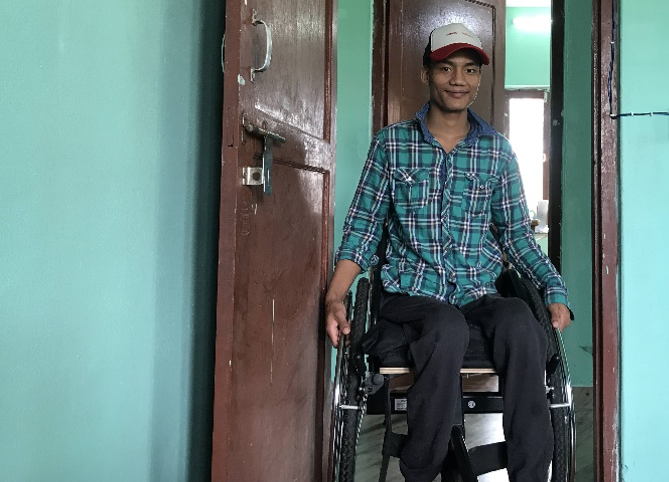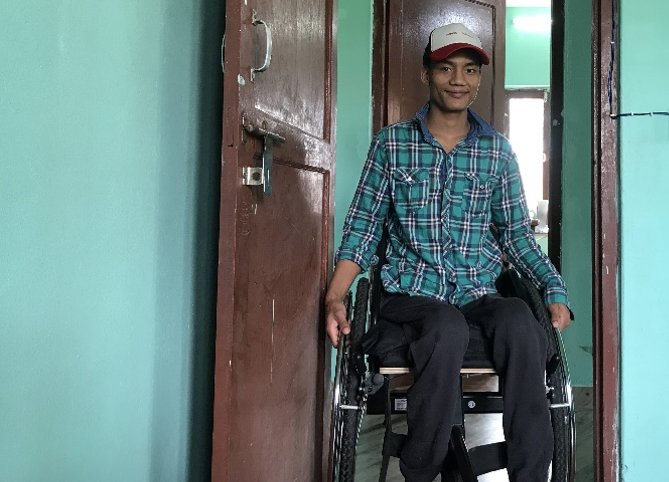
Ramesh Pariyar lost his father at a very early age and, although young, has worked as a driver, repairing and maintaining vehicles, and in a metal workshop. He was just eighteen and living with his mother in Pokhara, when he fell from the roof of a building under construction at a worksite almost a year ago, suffering serious spinal cord injury.
He underwent surgery at a private hospital, with some financial support from his employer. However, without physical rehabilitation services and support after his surgery, his condition deteriorated and he developed painful and debilitating pressure sores.
Ramesh found his physical situation extremely difficult to bear and it affected his emotional and mental state “It was very hard to accept that I couldn’t walk on my own feet. I wished I could get well as normal before”.
INF became aware of Ramesh’s condition and was able to connect him to support at Green Pastures Hospital [GPH] through a telehealth program implemented with the support of the World Health Organisation [WHO]. GPH was able to support Ramesh with physical rehabilitation services and a wheelchair.
Ramesh has now been discharged from the hospital and his physical and emotional health has been strengthened through the support provided at Green Pastures and through the telehealth program. He has become involved with a disabled person’s organisation to learn work skills appropriate for him.
GPH is also coordinating with the organisation to advocate for Ramesh to receive Nepali citizenship. A common issue still faced by many people from poor and disadvantaged families and communities is that they may lack documentation relating to their birth or residency and be denied citizenship. Lack of citizenship makes it difficult for Ramesh to access government services and support which he should be entitled to.
Even after WHO ceased funding the telehealth program, GPH has continued to maintain contact with Ramesh and over 200 people with disabilities and caregivers across thirteen districts. As well as rehabilitation support, the service has been able to identify urgent medical needs, organise ambulance services for a number of patients, and deliver health packages or medications to patients who otherwise couldn’t access them.
The telehealth service helps INF support Ramesh’s ongoing rehabilitation. It allows medical and community rehabilitation teams to overcome the difficulties of distance and the restrictions faced because of the coronavirus pandemic. We are excited to see how it continues to contribute to improvements in the health and wellbeing of patients and their families.
The post Telehealth for Recovery appeared first on International Nepal Fellowship Australia.



